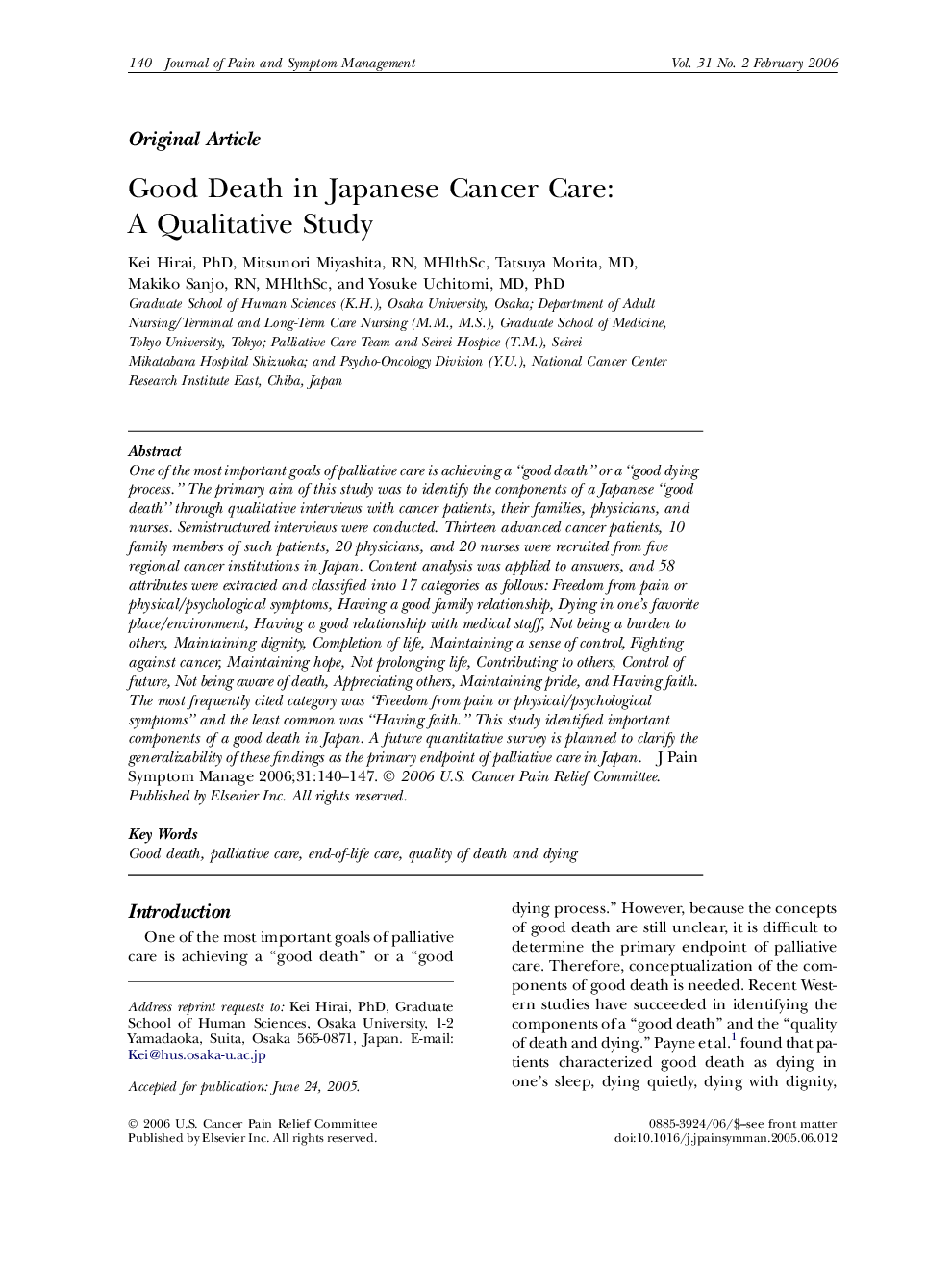| کد مقاله | کد نشریه | سال انتشار | مقاله انگلیسی | نسخه تمام متن |
|---|---|---|---|---|
| 2730432 | 1147246 | 2006 | 8 صفحه PDF | دانلود رایگان |

One of the most important goals of palliative care is achieving a “good death” or a “good dying process.” The primary aim of this study was to identify the components of a Japanese “good death” through qualitative interviews with cancer patients, their families, physicians, and nurses. Semistructured interviews were conducted. Thirteen advanced cancer patients, 10 family members of such patients, 20 physicians, and 20 nurses were recruited from five regional cancer institutions in Japan. Content analysis was applied to answers, and 58 attributes were extracted and classified into 17 categories as follows: Freedom from pain or physical/psychological symptoms, Having a good family relationship, Dying in one's favorite place/environment, Having a good relationship with medical staff, Not being a burden to others, Maintaining dignity, Completion of life, Maintaining a sense of control, Fighting against cancer, Maintaining hope, Not prolonging life, Contributing to others, Control of future, Not being aware of death, Appreciating others, Maintaining pride, and Having faith. The most frequently cited category was “Freedom from pain or physical/psychological symptoms” and the least common was “Having faith.” This study identified important components of a good death in Japan. A future quantitative survey is planned to clarify the generalizability of these findings as the primary endpoint of palliative care in Japan.
Journal: Journal of Pain and Symptom Management - Volume 31, Issue 2, February 2006, Pages 140–147